Distributing Locally-Produced Food in Gaza
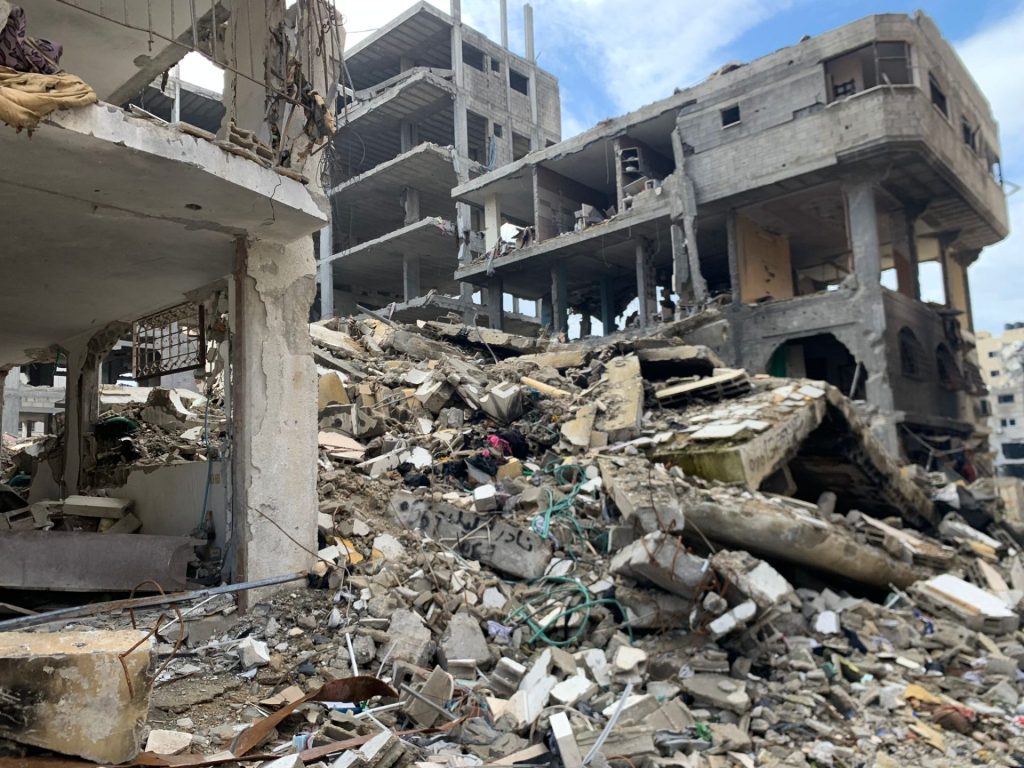
Destruction in Gaza City (taken by Peace Winds staff 1/29/24)
Six months have passed since the start of the war in Gaza, which has triggered one of the world’s worst humanitarian crises. As of April 3, the death toll has reportedly surpassed 32,900, with another 75,400 people injured.
Famine and water shortages have now become one of the biggest threats to Palestinians caught in the crossfire. According to the United Nations, nearly all of Gaza’s 2.2 million people are at risk of starvation, with more than 1.9 million already facing “acute” or “catastrophic” levels of malnutrition. While a limited number of food and aid trucks are entering Gaza from other countries, the Israeli Defense Forces’ attacks on aid workers has compounded the shortages. This issue is particularly prominent in the southern region of Rafah, where more than 1.5 million people have fled.
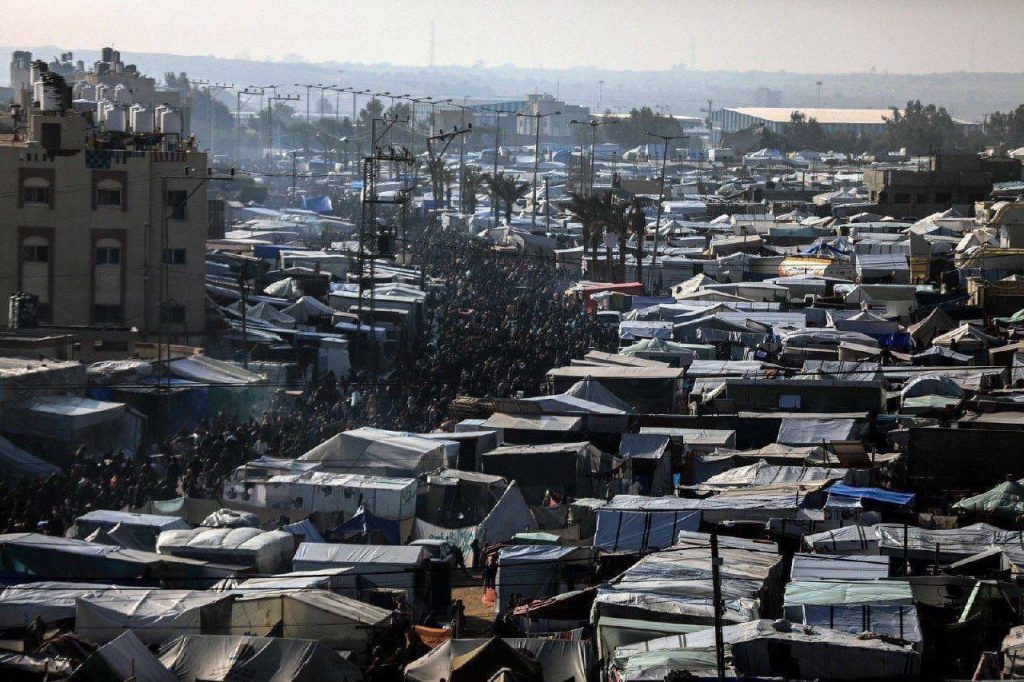
Southern Rafah, crowded with tents (taken by partner staff on 2/29/24)
Peace Winds is taking a unique approach to distributing food with the help of local staff members and partner organizations. The blockade makes it extremely difficult and expensive to get food into the Gaza Strip, but Peace Winds has arranged to purchase vegetables from local farmers inside the Gaza Strip. This can only be done in limited quantities, but by the end of February, our teams had distributed vegetables to 785 households in Rafah and 500 households in Deir al-Balah in Gaza’s central region.
Peace Winds has also been arranging to send some of our aid trucks into Gaza from across the Egyptian border. The number of trucks we can get in is severely limited by long and unpredictable wait times, price gouging, and the peril of the route, but recent trucks have managed to distribute food packages–containing items like canned beans and tuna, rice, flour, powdered milk, cheese, and cooking oil–to an additional 1,176 households in central Gaza.
As the situation progresses, Peace Winds will continue to collaborate with partners to distribute food kits to as many families as possible. We are currently working to bring in another three trucks from Egypt carrying food for 3,000 families, and we plan to distribute food purchased from local businesses to an additional 1,250 households in both Rafah and Gaza City. Peace Winds also has plans to begin distribution of drinking water in Gaza City.
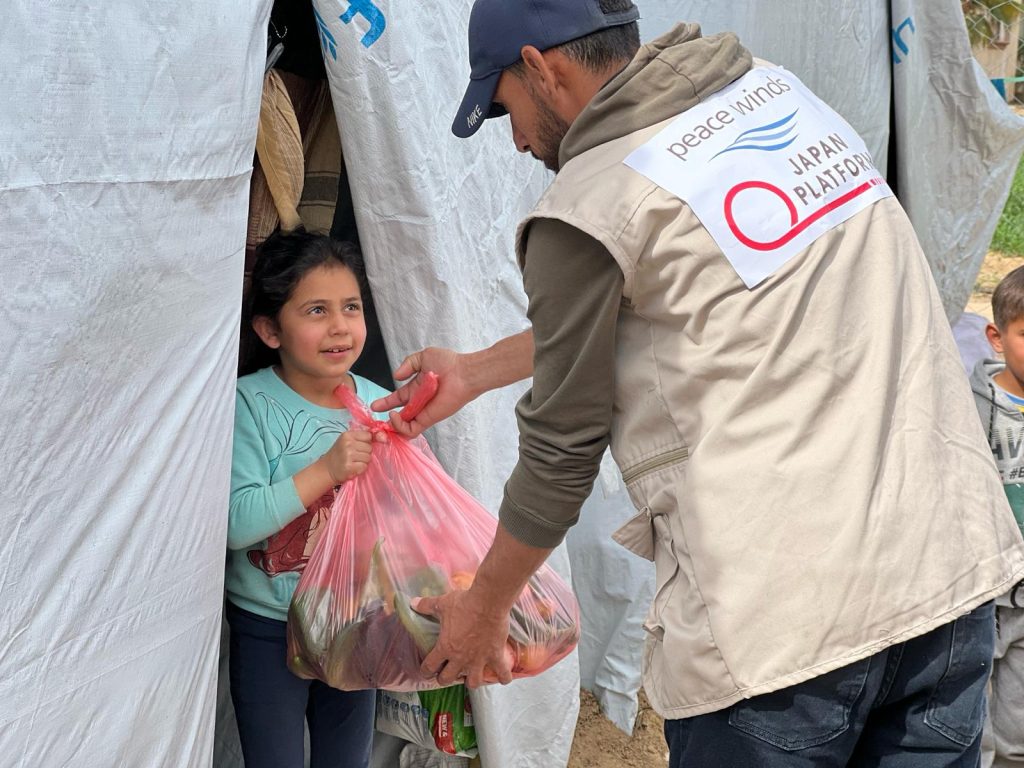
Food distribution in Rafah (taken by partner staff on 2/16/24)
Over the last six months, both of Peace Winds’ local Palestinian staff members in the Gaza Strip have experienced indescribable horrors. This includes the loss of family members and friends to Israeli gunfire. Despite being impacted by this crisis themselves, our staff have supported aid activities by communicating with local partners and reporting on the situation to Peace Winds’ headquarters staff.
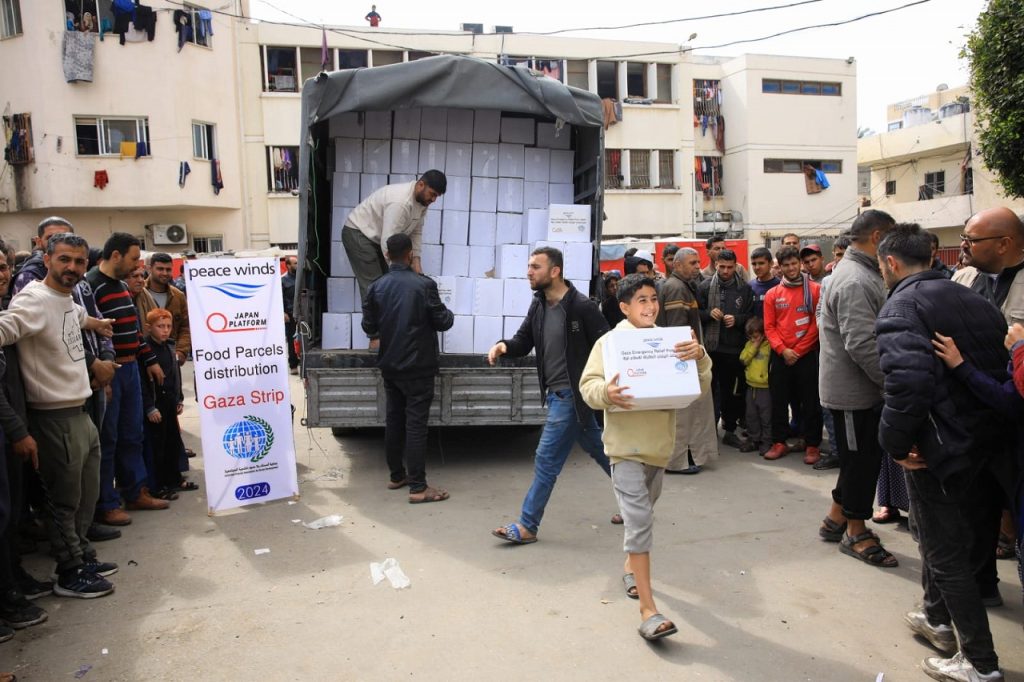
Food distribution in Deir al Balah (taken by partner staff 2/29/24)
Peace Winds’ local staff members report that the prolonged evacuation is only becoming more and more difficult. We often receive heartbreaking messages: “My wife has become so depressed that she cannot eat anything.” “Ever since my brother was murdered, my daughter has been grieving the loss of her uncle.” “My father has been detained.”
These attacks show no sign of slowing down, and there are intense concerns that aid may become more and more difficult to deliver, especially after the killings of seven more aid workers this week. However, Peace Winds will continue working to provide support through any possible means.
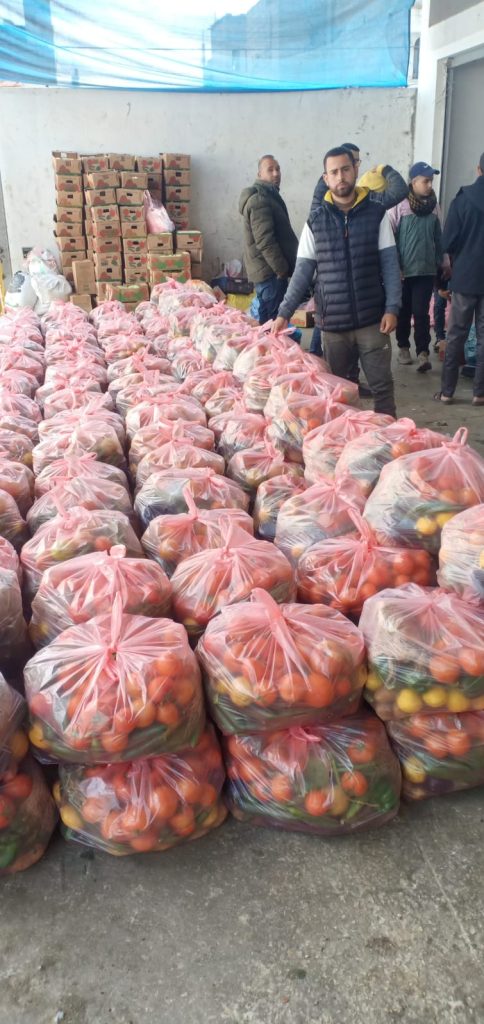
Preparing for food distribution in Rafah (taken by partner staff 2/19/24)
On the other hand, what the people of Gaza need most is a permanent ceasefire. As long as the killing of civilians continues, no amount of food or supplies will allow Palestinians to return to their homes and lives. Peace Winds is calling for an immediate ceasefire to prevent further killing of Israeli and Palestinian civilians.
Peace Winds’ food distribution activities in Gaza are made possible by the Japan Platform as well as contributions from individual donors. While Peace Winds America has not been actively fundraising for this program, individuals who wish to contribute to relief efforts for Palestinians can do so on our website by designating the donation to “Gaza” in the dropdown menu.